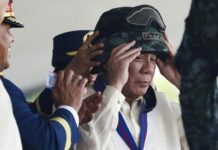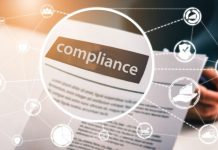
Abril 2015
After years of having landed on Spanish soil, Spaniards have just recently found out about a disease that has been affecting Venezuela for the last 15 years: the boliburgeoisie, the new bourgeoisie emerged in partnership with and at the service of the Bolivarian revolution and whose business relationship is based on corruption and money laundry.
Spaniards are already familiar with Víctor Vargas Irausquin, a leading member of the boliburgeoisie caste, mostly known for being the father in law of a great-grandson of Francisco Franco, Luis Alfonso de Bourbon. Known as the «Red Banker» (for being considered “the banker” of the chavista regime), in recent years he has also become a facilitator of transactions to purchase private media companies to put them at the service of the chavista government, as in the case of the holding Cadena Capriles, the journal El Universal and more recently the national TV chain Televén. To strengthen the Venezuelan government’s communication hegemony and protect the actual new owners, Vargas has used Spanish and English companies.
While Vargas was moderately wealthy before the Chávez regime, his estate has grotesquely increased over the past fifteen years. But even more grotesque is the way he exhibits it. He and most of the members of the bolibourgeoisie emerged encouraged by and in association with the governments of presidents Hugo Chávez and Nicolás Maduro. This is also the case of the so-called “boliboys”, a group of young “entrepreneurs” that made their fortunes selling power plants to the government in what seems to be a never-ending electrical crisis.
As Pablo Laplana, a financial operators of the Andorra Private Bank (BPA) working for a group of boliburgoises clients, said in a conversation with Dominique de Villepin recorded by the Spanish Civil Guard: «Diego (Salazar) just dedicated to enjoy life and how beautiful Paris .. (laughs) .. «.
Villepin, former French Prime minister, was hired as a lawyer by Diego Salazar to represent him in the BPA case. Salazar is a cousin of Rafael Ramírez, who spent ten years at the head of PDVSA (the state oil company) and is now the Venezuelan Ambassador at the United Nations. During his tenure at PDVSA, Ramírez benefitted his cousin by granting him a contract to manage the insurance of PDVSA. Salazar is now one of the richest men in Latin America.
While loose comments had appeared in recent years mostly in some Spanish celebrity magazines, the scandals of the BPA and Banco Madrid has finally drawn the attention of reporters specialized in baking, finance, organized crime and court issues, who are starting to investigate the lives of boliburgeoises and boliboys in Europe and America.
This story is no longer just about the tropical eccentricities of a group of Caribbean billionaires fully enjoying the pleasures of Madrid, Paris or London: it is now a serious matter with serious consequences for the places where they operate. The toxic capitals of the bolibourgeoises, for instance, deadly infected two European banks and putt at risk the economic health of a small country. Since nobody wants to be in that situation ever again, doing businesses in those places will be more difficult for this group from now on. As a result of these scandals, their many accounts are now being looked under a giant magnifying glass.
Portugal, Italy, Switzerland, France and Hong Kong have taken note of this situation. Putin has done so too, but in a different way: where some see a problem, he sees an opportunity. Financial Intelligence sources indicate that while the tax amnesty proposed by the Russian government last December aimed to repatriate the millions of dollars that their citizens have abroad, it also aims at attracting capitals of dubious sources from «friends and partners» (as the Venezuelans) to protect their accounts from potential blockages that may result from money laundering investigations in the US and Europe.
All seems to indicate that the boliburgeois’ funds fled Andorra and Madrid between 2012 and 2013 in search of new shelters. Given the magnitude of the scandal triggered by the report of the US Treasury Department and the severe consequences that it has had for the banks involved, wherever that money is now, it will be a matter of concern for its operators.
Money moves, but it does not do it by itself. Someone mobilizes it and usually leaves a trace. The boliburgeoisie money is leaving behind a radioactive trail showing that it ruins everything it touches. The list of places where to hide that money is becoming shorter and shorter.
Where will the next scandal happen? Portugal? Singapore? Moscow?
Whatever the case, there is no doubt that the investigation is ongoing.












